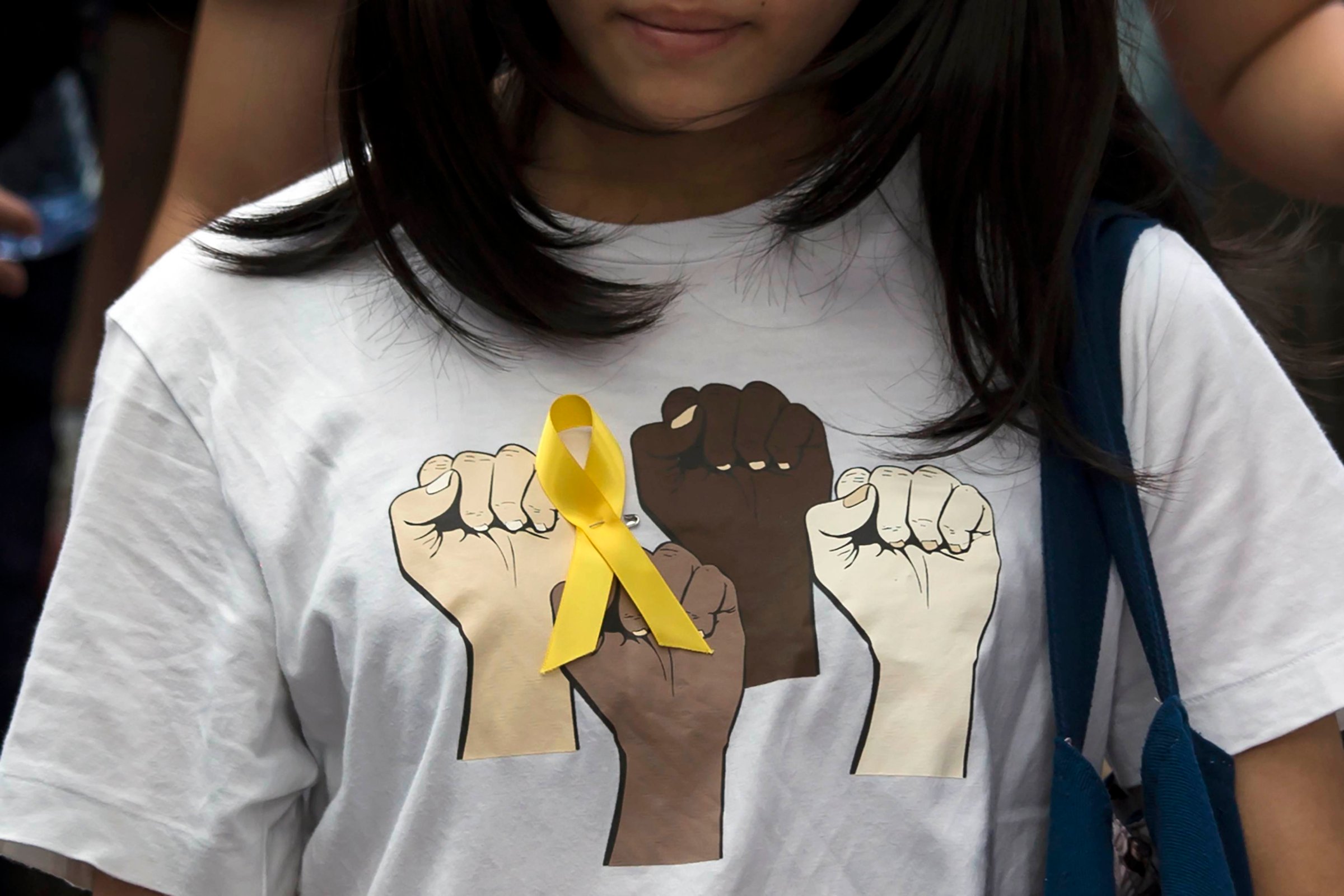
On Wednesday, as the People’s Republic of China celebrates its 65th anniversary, tens of thousands of American undergraduates from universities across the country will dress in yellow, the identifying color of Hong Kong’s pro-democracy movement.
The fight for unfettered elections in the former British colony has reached unprecedented levels over the past four days. Tens of thousands of demonstrators continue to besiege the city’s central business and government districts — braving police batons, tear gas and pepper spray — to demand democratic concessions from Beijing.
In a demonstration of solidarity, the Wear Yellow for Hong Kong campaign was launched by Heather Pickerell, who spent the majority of her childhood living in Hong Kong with her American father and Taiwanese mother before moving to New England three years ago as a freshman at Harvard.
The 21-year-old wasn’t “necessarily supportive” of the push for political reform at home, she says, until Beijing issued a White Paper in early June — a sprawling, 14,500-word tract — that effectively left Hong Kong with little doubt about who was in charge.
“Growing up, we had this innate hope that we’d someday have democracy in Hong Kong,” Pickerell told TIME late Monday night. “Now, I’m realistic. Whatever China wants to do, there’s nothing Hong Kong can do about it. The only real tool we have is international pressure and scrutiny.”
Wearing yellow, in other words, is secondary to the conversation she hopes it engenders. She is among the many who believe — or, at least, gravely hope — that the current groundswell of discontent in Hong Kong could encourage a new culture of domestic politics in China if the international response is loud and coherent enough to compel a change.
And so Pickerell created the Facebook event group on Thursday after delivering a dinner speech on the current situation in Hong Kong to several hundred of her peers in Mather House, her residence hall at Harvard. The page had around 300 members on Sunday — and then nearly 30,000 less than two days later.
A friend from Hong Kong at Yale then brought the solidarity practice to New Haven. It was swiftly embraced at Brown, where the Hong Kong Students’ Association had organized a national conference earlier in the spring to discuss the matter of political reform. Then to Pitzer and Wellesley and the University of Toronto, and now at around 50 other universities and counting.
“I saw the pictures of the protests on Facebook and read my friends’ tweets, and I really needed to do something,” Myron Lam, the Hong Konger who brought the campaign to Brown, where he is a senior, told TIME. “The last few days have shown that there is hope in Hong Kong, but we need to act, and show Beijing that the issue is on the international radar.”
More Must-Reads from TIME
- Donald Trump Is TIME's 2024 Person of the Year
- TIME’s Top 10 Photos of 2024
- Why Gen Z Is Drinking Less
- The Best Movies About Cooking
- Why Is Anxiety Worse at Night?
- A Head-to-Toe Guide to Treating Dry Skin
- Why Street Cats Are Taking Over Urban Neighborhoods
- Column: Jimmy Carter’s Global Legacy Was Moral Clarity
Contact us at letters@time.com